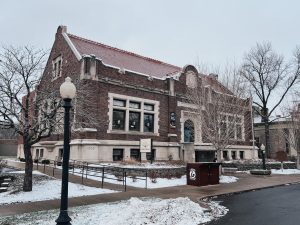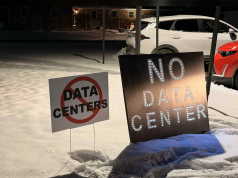Tom Harker
Let’s start by saying that I have a negative view of Libertarians, or at least of some people who identify themselves as Libertarians. So many I have met have expressed their own, private definition of Libertarianism, and that makes it difficult to have a discussion since nothing is tied down. What one sees as orthodoxy another denies altogether. So, with that in mind, I will be writing based on the understanding of Libertarians provided by my experience. It might be different from yours, but the shape-shifting quality that can cause such differences is just one more negative aspect of Libertarianism.
Based on those I’ve met, read about, or heard speak in the media, Libertarians are anarchists with police protection. They don’t like taxes and regulations or foreign military involvements. They don’t like public institutions: the U.S. Postal Service, public schools, Social Security, Medicare, Medicaid. They want to “privatize” everything – except police and a much smaller armed force.
They do believe in laissez-faire capitalism, private property rights, and contract enforcement. While they object to such things as the public schools because they are forced to pay taxes to support them, they are glad to have us all pay taxes to support police, prisons, and a “justice” system that controls anyone who objects to being exploited by Libertarians. And though they want seriously down-sized government, they want enough left to enforce Right to Work and other restrictions of workers’ freedom.
Libertarians value laws and institutions that enforce conditions favorable to their economic dominance (their “Liberty”) but reject laws and institutions that are supportive of the rest of us, things that move society toward a more balanced economy (and our Liberty).
According to Wikipedia, “Right Libertarianism” is the dominant form of the ideology in the United States and defends socio-economic inequality, inheritance, and uneven concentrations of wealth. Critic Corey Robin argues that “Right Libertarianism” is a reactionary conservative ideology committed to enforcing hierarchical power and hierarchical social relations. Calling for the elimination of the so-called federal “Death Tax” (paid only on estates worth more than $5,000,000) comes to mind.
Ayn Rand, Libertarian Paul Ryan’s mentor (“Ayn.” according to Ms. Rand, rhymes with “swine” – an apt rhyme) is a good representative of this self-serving philosophy. Rand preached the good of selfishness (“rational self-interest”) with personal happiness achieved through capitalism as the greatest good. Altruism and consideration of others is bad. She believed that unbridled, laissez-fair Capitalism provided all the morality that was needed. The able Heroes would succeed. Losers would not.
Rand was an atheist and despised religion, for which she deserves some credit, since her philosophy so blatantly disregards religious teachings. The same can’t be said for Paul Ryan and others who blithely practice selfishness while calling themselves “Christian.”
It may seem from a superficial understanding of the ideology that Libertarianism balances its selfishness via its “liberal social” outlook. Adherents don’t seem to care whether you are gay, feminist, atheist, Catholic, Jewish, Mormon, Hindu, African American, Latino, married, unmarried, young, old, or a doctor who provides abortions. They only care about money and power; if you don’t stand in the way of that, they don’t care who or what you are or what you believe or do.
At the same time, if you aren’t doing well, they don’t want the government taxing them to help you. If you are poor or disadvantaged, it’s your own fault; work harder. On the other hand, they will gladly have you pay taxes to help them build and operate prisons where they can put you for interfering in their political/economic agenda. Small government, yes, but we must have enough of it to protect the Makers from the Takers and to undermine unions.
As has been documented, the rich are getting richer, the poor poorer, and the middle class is shrinking. That’s all well and good for Libertarians; as Ayn Rand pointed out, they are the heroes and deserve their station above the “second handers,” the Takers. As she taught, selfishness is good.
Libertarianism is fairly new, but this attitude is quite old. Long ago poverty was explained by sin; the rich were godly and rewarded; the poor were filthy sinners punished by God. With the advent of Darwin and his “On the Origin of Species,” poverty was explained by “survival of the fittest”; the poor just couldn’t compete, and helping them out would be a waste of time. The well-off blaming the poor for their poverty predates America, but once Europeans arrived we continued the practice here uninterrupted until today (see Nancy Isenberg’s book “White Trash – The 400-Year Untold History of Class in America,” the story of Americans referred to as “rubbish,” “swamp vagrants,” “crackers,” “hillbillies,” and “trailer trash”).
As John Kenneth Galbraith said in 2002, “The modern conservative is engaged in one of man’s oldest exercises in moral philosophy; that is, the search for a superior moral justification for selfishness.” At present that’s Libertarianism.
This article originally appeared on The Pickaway News Journal










